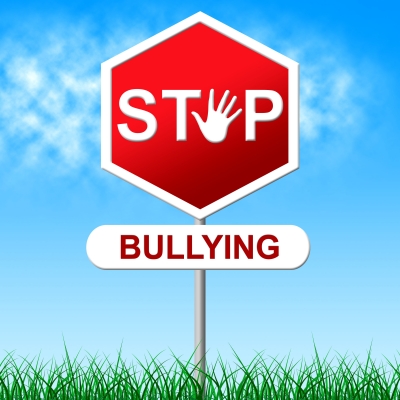Bullying is a hard topic to speak about. So far there is no "cure" for bullying. Often times the new "Zero Tolerance Policies" schools have now adopted still don't work as well as they should. How do we both stop and handle this rampant problem?
First understand, what is bullying exactly. Bullying can take the form of physical, verbal or relational repeated behaviors towards another person. Bullying consists of things such as name-calling, teasing, taunting, harassing, stealing, hazing, spreading rumors, excluding people or spreading lies. This can happen in person, or more recently online with cyber bullying. A lot of kids don't realize they are being a bully by doing some of these things and only relate physical aggression as bullying.
Second, it is important to teach children and adolescents possible reasons why bullying occurs. Bullies themselves often bully other people because they might be jealous, they might gain more popularity, it makes them feel more powerful, they are being bullied or abused themselves, or they are trying to escape from their own problems. There is no excuse for bullying, but sometimes there is a bigger picture.
Third, the victims need to focus in on themselves. Victims should work on building up their self-esteem and appreciating themselves for who they are. Learn to not blame yourself and shoulder that responsibility. Victims never earn or deserve bullying. Victims also should learn appropriate coping skills to handle stress and bullying appropriately in the moment. Look at the big picture and understand what is happening and focus more on the positive to not let it affect internal thoughts and feelings.
So what is your ultimate task list? First of all, always get help. Nobody should have to deal with bullying. Find a teacher or older adult to stop it from happening in the moment. Get a plan in place to handle it. Other things that you could do are simply to walk away and don't show that it affects you. Most bullies will eventually get bored and stop if they do not get the reaction they want. And lastly, remember to use appropriate skills to handle what is going on and not ignore it so it does not ultimately lead to depression later in life. There is help out there, most people just need to find what works for them.
Other helpful references:
HelpGuide.Org
KidsHealth
StopBullying.Gov


 RSS Feed
RSS Feed
